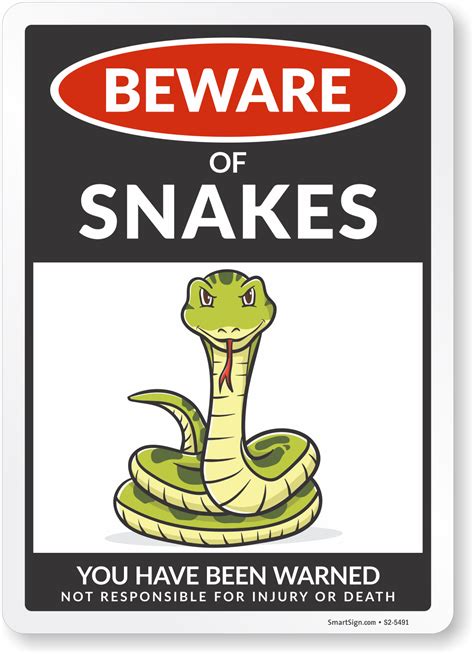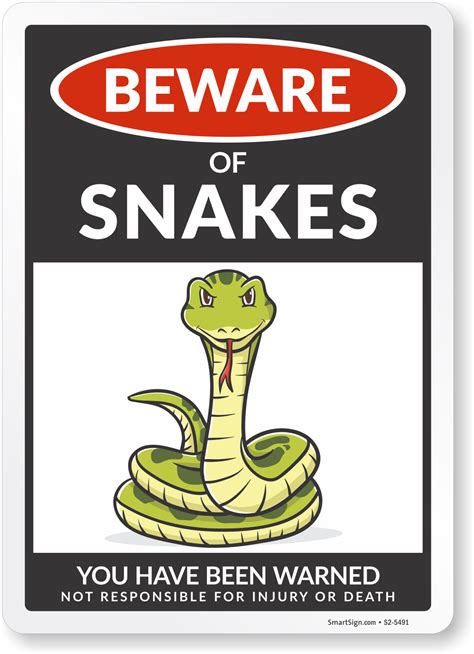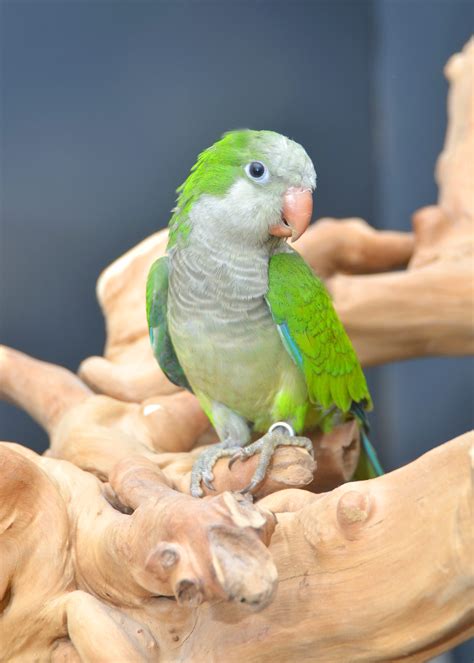
A blend of sweet and spicy scents, specifically combining clove and cinnamon essential oils, may effectively deter snakes from entering yards, offering a natural alternative to chemical repellents.
Homeowners seeking to keep snakes away from their properties may find a surprising solution in their spice racks. According to recent reports, a combination of sweet and spicy scents, particularly clove and cinnamon essential oils, can act as a natural and effective snake repellent. This method offers a less harmful alternative to traditional chemical-based solutions, appealing to those concerned about the environment and the well-being of their families and pets.
Numerous anecdotal accounts suggest that snakes are highly sensitive to certain smells, and the strong, pungent aroma of clove and cinnamon appears to be particularly offensive to them. While the scientific community continues to investigate the exact mechanisms behind this phenomenon, the practical application of this knowledge is already gaining traction among homeowners.
“Snakes don’t like strong smells, so cinnamon and clove essential oils are great options,” stated one expert. This simple yet profound statement encapsulates the core principle behind this natural repellent method. By understanding the sensory sensitivities of snakes, individuals can leverage readily available household items to create a protective barrier around their yards.
The use of essential oils as snake repellents is not a new concept, but the specific combination of clove and cinnamon is gaining popularity due to its reported efficacy and pleasant aroma. Unlike some other repellents that rely on harsh chemicals, clove and cinnamon offer a more palatable scent for humans, making them an attractive option for families with children and pets.
To implement this repellent strategy, homeowners can saturate cotton balls with a mixture of clove and cinnamon essential oils and strategically place them around the perimeter of their yards, near entry points such as doorways and windows, and in areas where snakes are commonly observed. Alternatively, the essential oils can be diluted with water and sprayed directly onto surfaces or vegetation.
It is important to note that while this method shows promise, it is not a guaranteed solution for all snake-related problems. The effectiveness of essential oil repellents can vary depending on factors such as the type of snake, the concentration of the oils, and environmental conditions. Regular reapplication of the oils may also be necessary to maintain their potency, particularly after rainfall or periods of high humidity.
For individuals dealing with severe snake infestations or those who are unsure about how to safely handle snakes, it is always recommended to consult with a professional wildlife control expert. These professionals have the knowledge, experience, and equipment to safely remove snakes from properties and implement effective long-term prevention strategies.
Understanding Snake Behavior and Repellents
Snakes are cold-blooded reptiles that play an important role in the ecosystem by controlling populations of rodents and other pests. However, their presence in residential areas can be a source of concern for many people. Understanding snake behavior and the factors that attract them to yards can help homeowners take proactive steps to prevent snake encounters.
Snakes are often drawn to yards in search of food, water, and shelter. Areas with abundant vegetation, such as gardens, shrubs, and overgrown lawns, provide ideal hiding places for snakes. Piles of wood, rocks, and debris can also create attractive habitats. Additionally, snakes may be attracted to yards that have a plentiful supply of prey, such as rodents, insects, and amphibians.
To make a yard less appealing to snakes, homeowners can take several steps:
- Remove potential food sources: Control rodent populations by using traps or other methods. Eliminate standing water and reduce insect populations.
- Eliminate hiding places: Keep lawns mowed, trim shrubs and bushes, and remove piles of wood, rocks, and debris.
- Seal cracks and crevices: Inspect the foundation of the house and other structures for cracks and crevices that snakes could use to enter. Seal any openings with caulk or other materials.
- Install snake fencing: A barrier of fine mesh fencing can be installed around the perimeter of the yard to prevent snakes from entering.
While these measures can help reduce the likelihood of snake encounters, they may not be sufficient to completely eliminate the risk. This is where snake repellents come into play.
Snake repellents are products that are designed to deter snakes from entering an area. They come in various forms, including granules, sprays, and electronic devices. Some repellents contain chemical ingredients, while others rely on natural substances.
The effectiveness of snake repellents can vary depending on the product, the type of snake, and environmental conditions. Some repellents may only provide temporary relief, while others may be more effective in the long term.
The Science Behind Clove and Cinnamon as Snake Repellents
The use of clove and cinnamon essential oils as snake repellents is based on the principle that snakes are sensitive to certain smells. Snakes rely heavily on their sense of smell to locate prey, find mates, and navigate their environment. They have a specialized organ called the Jacobson’s organ, which is located in the roof of their mouth and is used to detect chemical cues in the air.
When a snake encounters a strong or unpleasant odor, it can trigger a defensive response. This response may include avoidance behavior, such as turning away from the source of the odor or leaving the area altogether.
Clove and cinnamon essential oils contain compounds that are known to have strong and pungent aromas. Clove oil contains eugenol, a compound that has antiseptic, analgesic, and anti-inflammatory properties. Cinnamon oil contains cinnamaldehyde, a compound that gives cinnamon its characteristic flavor and aroma.
These compounds are believed to irritate snakes’ sensory receptors, causing them to avoid the area where the oils are present. While the exact mechanism is not fully understood, it is thought that the strong smell of clove and cinnamon may overwhelm the snake’s sense of smell, making it difficult for them to detect prey or navigate their environment.
How to Use Clove and Cinnamon Essential Oils as Snake Repellents
To use clove and cinnamon essential oils as snake repellents, you will need the following materials:
- Clove essential oil
- Cinnamon essential oil
- Cotton balls or spray bottle
- Water (optional)
Here are two methods for using clove and cinnamon essential oils as snake repellents:
Method 1: Cotton Balls
- Saturate cotton balls with a mixture of clove and cinnamon essential oils. A ratio of 1:1 is generally recommended.
- Place the cotton balls around the perimeter of your yard, near entry points such as doorways and windows, and in areas where snakes are commonly observed.
- Replace the cotton balls every few weeks, or more frequently if they become wet or lose their scent.
Method 2: Spray Bottle
- Dilute the essential oils with water in a spray bottle. A ratio of 1 part essential oil to 10 parts water is generally recommended.
- Shake the spray bottle well to mix the oils and water.
- Spray the mixture directly onto surfaces or vegetation in areas where you want to repel snakes.
- Reapply the spray every few weeks, or more frequently after rainfall or periods of high humidity.
When using essential oils as snake repellents, it is important to take certain precautions:
- Use pure essential oils: Make sure that you are using pure essential oils, not synthetic fragrances.
- Dilute the oils: Essential oils can be irritating to the skin and eyes, so it is important to dilute them before use.
- Avoid contact with skin and eyes: If you get essential oils on your skin or in your eyes, wash the affected area with soap and water.
- Keep out of reach of children and pets: Essential oils can be harmful if ingested, so it is important to keep them out of reach of children and pets.
- Test on a small area: Before applying essential oils to a large area, test them on a small, inconspicuous area to make sure that they do not damage the surface.
Other Natural Snake Repellents
In addition to clove and cinnamon essential oils, there are several other natural substances that are believed to repel snakes. These include:
- Garlic: Garlic contains compounds that are known to irritate snakes. You can plant garlic around your yard or place garlic cloves in areas where you want to repel snakes.
- Onions: Onions have a similar effect to garlic and can be used in the same way.
- Cayenne pepper: Cayenne pepper contains capsaicin, a compound that is known to irritate snakes. You can sprinkle cayenne pepper around your yard or mix it with water and spray it on surfaces.
- Vinegar: Vinegar has a strong odor that is believed to repel snakes. You can pour vinegar around your yard or soak rags in vinegar and place them in areas where you want to repel snakes.
- Ammonia: Ammonia has a strong odor that is believed to repel snakes. You can soak rags in ammonia and place them in areas where you want to repel snakes. However, ammonia can be harmful to plants and animals, so it should be used with caution.
- Marigolds: Marigolds are believed to repel snakes due to their strong scent. Plant marigolds around your yard to help keep snakes away.
- Snake Away: Although a commercial product, some formulations of “Snake Away” utilize natural ingredients like cedarwood oil, which is reputed to repel snakes. Always check the label for ingredients and safety information.
When to Call a Professional
While natural snake repellents can be effective in some cases, they are not always a guaranteed solution. If you are dealing with a severe snake infestation or if you are unsure about how to safely handle snakes, it is always recommended to consult with a professional wildlife control expert.
A professional wildlife control expert can:
- Identify the type of snake that is present on your property.
- Assess the extent of the snake infestation.
- Develop a customized plan to remove the snakes from your property.
- Implement effective long-term prevention strategies to keep snakes from returning.
- Safely handle and relocate snakes in accordance with local laws and regulations.
The Importance of Responsible Snake Management
Snakes are an important part of the ecosystem, and they play a vital role in controlling populations of rodents and other pests. However, their presence in residential areas can be a source of concern for many people. It is important to manage snakes responsibly, taking steps to prevent snake encounters while also respecting their ecological role.
When dealing with snakes, it is important to remember that they are wild animals and should be treated with caution. Never attempt to handle a snake unless you are trained to do so. If you encounter a snake in your yard, it is best to leave it alone and allow it to move on its own. If you are concerned about the snake’s presence, you can contact a professional wildlife control expert for assistance.
By taking proactive steps to prevent snake encounters and managing snakes responsibly, you can help ensure the safety of your family and pets while also protecting the environment.
Expanding on Snake Attractants and Deterrents
To further understand how to effectively manage snakes around your property, it’s helpful to delve deeper into specific attractants and deterrents. Beyond the general categories of food, water, and shelter, certain specific conditions can be particularly appealing to snakes.
- Standing Water: Even small amounts of standing water, such as in bird baths, leaky hoses, or poorly drained areas, can attract snakes. They need water for hydration and are drawn to moist environments.
- Rodent Activity: A high rodent population is a major attractant. Mice, rats, and voles are a primary food source for many snake species.
- Bird Feeders: While not directly consumed by snakes, bird feeders often attract rodents, which in turn attract snakes.
- Overgrown Vegetation: Dense shrubs, ground cover, and untrimmed trees provide excellent hiding places for snakes and their prey. Ivy is a common culprit, offering both cover and potential nesting sites for rodents.
- Compost Piles: Decomposing organic matter in compost piles can attract rodents and insects, creating a food source for snakes.
- Rock Piles and Wood Stacks: These provide shelter and can also harbor rodents and insects.
Conversely, certain environmental modifications can act as effective deterrents:
- Habitat Modification: This is the most effective long-term strategy. By removing potential food sources, hiding places, and water sources, you can make your property less attractive to snakes.
- Predator Encouragement: While potentially controversial, some people encourage natural predators of snakes, such as owls, hawks, and certain breeds of dogs (terriers, in particular, though they should be supervised). However, introducing predators can have unintended consequences for the local ecosystem.
- Physical Barriers: Snake fencing, made of fine mesh, can be installed around the perimeter of your property or around specific areas, such as gardens or play areas. The fencing should be buried several inches into the ground and angled outwards to prevent snakes from climbing over it.
- Gravel or Stone Borders: Some homeowners create a border of gravel or crushed stone around their homes, as snakes are less likely to cross these surfaces.
- Cleanliness: Regularly cleaning up debris, removing fallen fruit, and keeping your yard tidy can help reduce the attractiveness of your property to snakes.
Legal Considerations and Ethical Treatment
It’s crucial to be aware of local laws and regulations regarding snakes. In some areas, certain snake species are protected, and it may be illegal to kill or harm them. Relocating snakes can also be problematic, as it can disrupt local ecosystems and potentially spread diseases.
When dealing with snakes, it’s important to prioritize humane and ethical treatment. Avoid using methods that could cause unnecessary suffering or harm to the animals. Trapping and relocating snakes should be done with care to minimize stress and injury. If you are unsure about how to handle a snake, contact a professional wildlife control expert for assistance.
The Future of Snake Repellents: Research and Development
Ongoing research is exploring new and improved snake repellents, including both chemical and natural options. Scientists are investigating the specific compounds that are most effective at deterring snakes and developing formulations that are safe for humans, pets, and the environment.
One area of research focuses on the use of pheromones to repel snakes. Pheromones are chemical signals that animals use to communicate with each other. Scientists are exploring the possibility of using synthetic pheromones to create repellents that mimic the scents of snake predators or other snakes.
Another area of research focuses on the development of biodegradable and environmentally friendly repellents. These repellents would be made from natural ingredients and would break down quickly in the environment, minimizing their impact on the ecosystem.
As research progresses, we can expect to see the development of more effective, safe, and humane snake repellents that can help homeowners manage snakes around their properties.
The Role of Education and Awareness
Ultimately, the most effective way to manage snakes is through education and awareness. By understanding snake behavior, identifying potential attractants, and implementing preventative measures, homeowners can reduce the likelihood of snake encounters and create a safer environment for themselves, their families, and the snakes themselves.
Local wildlife agencies, conservation organizations, and pest control professionals can provide valuable information and resources on snake identification, prevention, and management. By working together, we can promote responsible snake management practices that benefit both people and the environment.
FAQs About Using Clove and Cinnamon to Repel Snakes
Q1: How effective are clove and cinnamon essential oils at repelling snakes?
A1: The effectiveness can vary. Anecdotal evidence suggests that the strong scents of clove and cinnamon can deter snakes, as they dislike strong smells. However, the degree of effectiveness depends on factors like the type of snake, concentration of the oils, and environmental conditions. It may not be a foolproof solution for all situations. Professional snake removal might be required for severe infestations.
Q2: How should I apply clove and cinnamon essential oils to repel snakes?
A2: You can saturate cotton balls with a mixture of clove and cinnamon essential oils (equal parts) and place them around your yard’s perimeter, near entry points, and in areas where snakes are commonly seen. Alternatively, you can dilute the essential oils with water (1 part oil to 10 parts water) and spray the mixture onto surfaces and vegetation. Reapply every few weeks, especially after rain.
Q3: Are clove and cinnamon essential oils safe for pets and children?
A3: While generally considered safer than chemical repellents, essential oils should still be used with caution. Keep them out of reach of children and pets to prevent ingestion. Dilute the oils properly to avoid skin irritation. If pets or children ingest the oils or exhibit adverse reactions, consult a veterinarian or physician immediately.
Q4: Can I use clove and cinnamon powder instead of essential oils?
A4: Essential oils are generally more concentrated and potent than powders, making them more effective as repellents. While clove and cinnamon powder might offer some deterrent effect, the essential oils are likely to provide better results due to their higher concentration of aromatic compounds.
Q5: What other measures can I take to keep snakes away from my yard?
A5: In addition to using clove and cinnamon essential oils, you can take several other steps to make your yard less attractive to snakes. These include: removing potential food sources (rodents, insects), eliminating hiding places (piles of wood, rocks, overgrown vegetation), sealing cracks and crevices in your foundation, and installing snake fencing around your property. Consider also the use of other natural repellents like garlic or planting marigolds.









